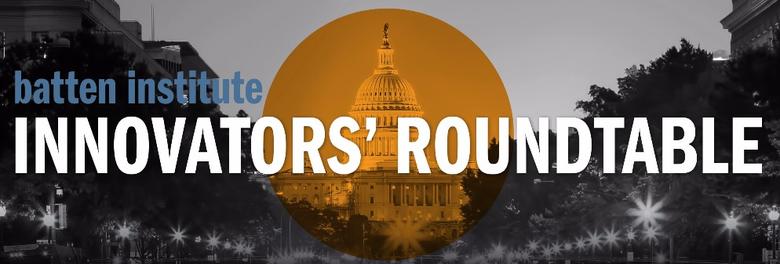Scaling Innovation Through Technology and Data
7 April 2016
The United States Institute of Peace
2301 Constitution Ave NW, Washington, D.C. 20037
AGENDA
9:00 a.m.—10:00 a.m. INFORMAL BREAKFAST Conference Room B203/204
10:00 a.m.—12:30 p.m. USING DATA ANALYTICS TO FUEL INNOVATION
Recent advances in digital technologies are generating unprecedented amounts of never-before-examined data. A combination of sensors embedded in physical objects, networking technology, cloud computing and analytics software allows companies to gain insights from vast amounts of industrial-machine data. Spread of mobile computing and social media platforms provides valuable, real-time insights into consumer behaviors and preferences. We will kick off the morning by focusing on how business leaders can leverage technology and data to drive innovation and fuel growth. We will explore the role of data and data analytics in the innovation process. Then, we will examine how companies can uncover insights in their data to create new products, services and business models. And, last but not least, we will look closely at the tools, processes and organizational structures that business leaders can put in place to do this effectively and efficiently.
12:30 p.m.—1:30 p.m. LUNCH Hauser Conference Room
1:30 p.m.—4:00 p.m. INNOVATION IN THE AGE OF DIGITAL TECHNOLOGIES: INDIVIDUAL VS. MACHINE Conference Room B203/204
Until recently, most design and innovation activities were done by individuals. However, “smart” machines are acquiring skills and abilities once unique to humans at an extraordinary pace. Rapid progress in artificial intelligence, machine learning, robotics and other digital domains is changing the way companies innovate by affecting the role individuals play in the innovation process. In light of these major technological advances we will explore several questions: What are the implications for how companies innovate? What role will people play in the innovation process? Is technology enabling people to innovate better or is it making us obsolete? What skills will be necessary for working alongside smart machines? And, most importantly, how can business leaders best prepare for the changing world?
4:00 p.m.—5:00 p.m. CONCLUSION/FUTURE DIRECTIONS

